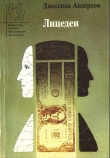
Текст книги "Моральный вирусолог"
Автор книги: Грег Иган
Жанр:
Научная фантастика
сообщить о нарушении
Текущая страница: 2 (всего у книги 3 страниц)
«Ты поняла, что я тебе рассказываю?»
«Конечно, понимаю. Только это еще не значит, что я тебе верю»
Он шагнул к ней и встряхнул ее в попытке убедить в своей искренности.
«Ты должна мне верить. Я рассказал абсолютную правду. Бог действительно карает прелюбодеев! СПИД был всего лишь предупреждением, но сейчас никто из грешников не спасется. Никто!»
Она отвела в сторону его руку.
«Твой Бог и мой Бог, видимо, имеют мало общего»
«Твой Бог!» – он задохнулся.
«О… Я в самом деле назвала его так? Прости… Я хотела сказать, это, наверное, включено в Устав ООН, или что-то в этом роде: «каждый с рождения сохраняет образ Бога в своем сердце – если ты порвешь с ним, или потеряешь веру в него, то не получишь ничего взамен»
«Ну, и кто из нас кощунствует?»
Она пожала плечами:
«Я верю, что мой Бог – это Спаситель, а твой кажется, скорее, бедствием. Может быть, мой Бог и не в силах исправить все проблемы в этом мире, но, по крайней мере, он не выворачивает их наизнанку, принося в мир еще больше зла…» Шоукрос раздраженно поморщился:
«Да, многие умрут. Некоторым грешникам уже не помочь… Но представь себе, каким станет мир, когда это послание Господа однажды достигнет каждого! Мир без супружеских измен, без изнасилований, мир, где станут невозможны разводы, и все браки будут продолжаться до самой смерти…»
Она скривилась:
«Да, внешне. Но не по велению сердца»
«Нет, ты не понимаешь! Так будет только сначала. Люди слабы, им нужен повод, они смогут стать праведными только из эгоистических соображений. Но потом… Со временем это станет чем-то большим, чем эгоистический страх. Войдет в привычку, в традицию, в часть человеческой натуры. Вирус уже не будет висеть над человечеством угрозой – люди сами изменятся»
«Ты так думаешь? Если бы моногамия была полезна для человеку, мне кажется, естественный отбор в конце концов…»
Шоукрос уставился на нее почти безумным взглядом.
«Прекрати эту чушь! Нет, и не может быть никакого «естественного отбора»!»
Ему еще не доводилось слышать лекций о дарвинизме от шлюх в борделях – но в этой стране, управляемой безбожниками-социалистами всего можно ожидать.
Немного успокоившись, он добавил:
«Вообще-то, я говорю об изменении духовных ценностей в мировой культуре»
Женщина лишь пожала плечами.
«Я знаю, тебе на это плевать, и тебя не волнует, что я думаю. Но все равно скажу. Ты – самый несчастный, самый запутавшийся человек, из всех, кого я видела в последнее время. Да, ты выбрал для себя какой-то собственный моральный кодекс – это твое право, и удачи тебе на этом пути. Но только – у тебя нет истинной веры в то, что ты делаешь. Тебе самому настолько сложно определиться в своем выборе, что ты придумал себе Бога в качестве оправдания. Твой Бог существует лишь для того, чтобы проливать пылающую серу на головы тех, кого ты считаешь грешниками, но кто на самом деле всего-навсего следует каким-то иным убеждениям. А когда твой Бог не справляется с этой обязанностью, ты приветствуешь природные катастрофы – землетрясения, наводнения, голод и эпидемии. Не правда ли, весьма впечатляющие примеры «Божьей кары»? Но знаешь что? Ты думаешь, что так ты доказываешь всем на свете, что Бог на твоей стороне. А на самом деле единственное, что ты доказываешь, – это собственную беззащитность».
Она взглянула на часы.
«Ну все. Твои пять минут давно истекли, а я никогда не говорю о теологии бесплатно. Да, вот только… У меня есть один, последний вопрос. Думаю, ты не откажешься ответить: ведь мне, судя по всему, какое-то время не доведется встретиться больше ни с одним экспертом-вирусологом…»
«Спрашивай…»
Итак, эта женщина предпочла умереть. Видит Бог, он сделал все, что мог, пытаясь убедить ее – но не сумел. И вот так, вместе с ней, умрут сотни тысяч заблудших. У него не было выбора – оставалось лишь смириться и верить. Только вера поможет сохранить ему рассудок…
«Этот вирус, созданный Богом… Я так поняла, он поражает только прелюбодеев и голубых. Правильно?»
«Ну да. Разве ты не слышала? В этом все и дело. Механизм действия вируса гениален: слепок ДНК…»
Она говорила медленно, четко выговаривая слова, будто бы разговаривала с глухим или слабоумным:
«Допустим, некая счастливая, моногамная, состоящая в браке, пара занималась сексом. Допустим, что женщина при этом забеременела. Ребенок не будет иметь в точности тот же набор генов, что и родители. Что будет тогда? Что случится с младенцем?»
Шоукрос смотрел на нее, словно загипнотизированный. Что будет с ребенком? Какой еще ребенок? Его разум был пуст. Он устал, он тосковал по дому, он почти шатался под грузом волнений последних недель… Он прошел через тяжелейшие испытания – какое право она имела требовать от него ясности мысли, с чего она решила, что он в состоянии сейчас объяснять каждую мельчайшую деталь? Да, но что случится с невинным, только что появившимся младенцем? Он пытался сконцентрироваться, собраться с мыслями, но беспредельный ужас от того, о чем она только что подумала и заставила подумать его, подобно тонкому, холодному и неумолимому щупальцу дюйм за дюймом затягивал его все дальше в безумие.
И вдруг Шоукрос рассмеялся. Он готов был заплакать от облегчения… Он погрозил пальцем глупой блуднице:
«Тебе не поймать меня на этом… О детях я подумал еще много лет назад. Еще в 94-м, на крестинах маленького Джола, сына моей кузины»
Шоукрос довольно ухмыльнулся и снова захихикал:
«Я решил эту проблему. Я добавил в ШН и ШМ-формы гены для поверхностных рецепторов, чувствительных к полудюжине протеинов в крови плода. Если хоть какой-то из рецепторов будет активирован, следующее поколение вируса будет чистой ША-формой. Безопасно даже грудное кормление в течение месяца, потому что нужно время, чтобы эти белки заменились другими»
«Примерно месяц», – эхом повторила женщина. Потом вдруг очнулась:
«Что ты имеешь в виду, говоря, что это ТЫ добавил гены?»
Но Шоукроса уже не было в комнате.
***
Он выскочил стремглав, и теперь бежал по улице, не разбирая дороги, пока не выдохся и не споткнулся. Хромая, он перешел улицу, не обращая внимания на удивленные взгляды прохожих. Месяца было недостаточно. И он знал об этом все это время – но в какой-то момент забыл, упустил из виду, и теперь не мог вспомнить, что он собирался в связи с этим предпринять. Там было слишком много деталей, слишком много сложных расчетов…
А дети уже вполне могли умирать. Шоукрос остановился на безлюдной стороне улицы, прислонился к ярко раскрашенному рекламному столбу возле ночного клуба и сполз на землю. Он сидел, бездумно глядя на холодную кирпичную стену напротив, и дрожал, обхватив себя руками. Откуда-то едва слышно доносилась музыка, приглушенная стенами. В чем он допустил ошибку?
Разве он мог ошибиться в определении цели Господа, создавшего СПИД? Нет, здесь его логическое заключение было безупречно. Разве он не посвятил всю свою жизнь усовершенствованию биологического механизма, способного отделить добро от зла? И если нечто, настолько безумно сложное, настолько тщательно разработанное, как его вирус, все же не смогло справиться… У него потемнело в глазах.
Что, если он был не прав с самого начала? Что, если его работа вовсе не диктовалась Божественной волей? Сейчас Шоукрос обдумывал эту мысль со спокойствием контуженного. Было слишком поздно предпринимать что-то, чтобы остановить распространение вируса. Но зато он мог пойти к специалистам, чтобы передать им детали, открытие которых заняло бы без его помощи многие годы. Имея информацию о рецепторах белков плода, изготовить вакцину, которая использовала бы эту возможность, можно было бы за несколько месяцев. И эта вакцина сделала бы возможным грудное кормление, переливание крови и пересадку органов…
Но она же позволила бы совокупляться прелюбодеям, дала бы возможность гомосексуалистам заниматься своими отвратительными извращениями. Как же так? Ведь это стало бы отрицанием всего, ради чего он жил; это потребовало бы от Джона Шоукроса полного морального безразличия. Он поднял голову и смотрел в пустое небо с растущим чувством паники. Мог ли он отважиться на это? Отказаться от всего, что до сих пор сделано, признать свою ошибку – и начать все сначала? Но он должен! Ведь дети умирают! Он должен молить Господа дать ему смелость…
А потом пришло откровение. Небеса ответили ему, вернув свою благодать. Вера затопила его потоком света, очищая душу, изгоняя из нее нелепые сомнения. Как он мог поддаться слабости и думать о том, чтобы сдаться, когда истинное решение – такое простое и очевидное? Он вскочил на ноги и бросился прочь из безлюдного переулка, повторяя про себя снова и снова, все более уверяясь в истинности собственных слов:
«ПРЕЛЮБОДЕИ!
СОДОМИТЫ!
МАТЕРИ, КОРМЯЩИЕ МЛАДЕНЦЕВ СТАРШЕ ЧЕТЫРЕХ НЕДЕЛЬ ОТ РОДУ!
ПОКАЙТЕСЬ СВОИХ ГРЕХАХ И БУДЕТЕ СПАСЕНЫ!»
***
© Перевод с английского Max V.T aka MakVal
Greg Egan
The Moral Virologist
Out on the street, in the dazzling sunshine of a warm Atlanta morning, a dozen young children were playing. Chasing, wrestling, and hugging each other, laughing and yelling, crazy and jubilant for no other reason than being alive on such a day. Inside the gleaming white building, though, behind double-glazed windows, the air was slightly chilly – the way John Shawcross preferred it – and nothing could be heard but the air-conditioning, and a faint electrical hum.
The schematic of the protein molecule trembled very slightly. Shawcross grinned, already certain of success. As the pH displayed in the screen's top left crossed the critical value – the point at which, according to his calculations, the energy of conformation B should drop below that of conformation A – the protein suddenly convulsed and turned completely inside-out. It was exactly as he had predicted, and his binding studies had added strong support, but to see the transformation (however complex the algorithms that had led from reality to screen) was naturally the most satisfying proof.
He replayed the event, backwards and forwards several times, utterly captivated. This marvellous device would easily be worth the eight hundred thousand he'd paid for it. The salesperson had provided several impressive demonstrations, of course, but this was the first time Shawcross had used the machine for his own work. Images of proteins in solution! Normal X-ray diffraction could only work with crystalline samples, in which a molecule's configuration often bore little resemblance to its aqueous, biologically relevant, form. An ultrasonically stimulated semi-ordered liquid phase was the key, not to mention some major breakthroughs in computing; Shawcross couldn't follow all the details, but that was no impediment to using the machine. He charitably wished upon the inventor Nobel Prizes in chemistry, physics and medicine; viewed the stunning results of his experiment once again, then stretched, rose to his feet, and went out in search of lunch.
On his way to the delicatessen, he passed that bookshop, as always. A lurid new poster in the window caught his eye: a naked young man stretched out on a bed in a state of postcoital languor, one corner of the sheet only just concealing his groin. Emblazoned across the top of the poster, in imitation of a glowing red neon sign, was the book's title: A Hot Night's Safe Sex. Shawcross shook his head in anger and disbelief. What was wrong with people? Hadn't they read his advertisement? Were they blind? Stupid? Arrogant? Safety lay only in the obedience of God's laws.
After eating, he called in at a newsagent that carried several foreign papers. The previous Saturday's editions had arrived, and his advertisement was in all of them, where necessary translated into the appropriate languages. Half a page in a major newspaper was not cheap anywhere in the world, but then, money had never been a problem.
ADULTERERS! SODOMITES!
REPENT AND BE SAVED!
ABANDON YOUR WICKEDNESS NOW
OR DIE AND BURN FOREVER!
He couldn't have put it more plainly, could he? Nobody could claim that they hadn't been warned.
In 1981, Matthew Shawcross bought a tiny, run-down cable TV station in the Bible belt, which until then had split its air time between scratchy black-and-white film clips of fifties gospel singers, and local novelty acts such as snake handlers (protected by their faith, not to mention the removal of their pets' venom glands) and epileptic children (encouraged by their parents' prayers, and a carefully timed withdrawal of medication, to let the spirit move them). Matthew Shawcross dragged the station into the nineteen eighties, spending a fortune on a thirty-second computer-animated station ID (a fleet of pirouetting, crenellated spaceships firing crucifix-shaped missiles into a relief map of the USA, chiselling out the station logo of Liberty, holding up, not a torch, but a cross), showing the latest, slickest gospel rock video clips, "Christian" soap operas and "Christian" game shows, and, above all, identifying issues – communism, depravity, godlessness in schools – which could serve as the themes for telethons to raise funds to expand the station, so that future telethons might be even more successful.
Ten years later, he owned one of the country's biggest cable TV networks.
John Shawcross was at college, on the verge of taking up paleontology, when AIDS first began to make the news in a big way. As the epidemic snowballed, and the spiritual celebrities he most admired (his father included) began proclaiming the disease to be God's will, he found himself increasingly obsessed by it. In an age where the word miracle belonged to medicine and science, here was a plague, straight out of the Old Testament, destroying the wicked and sparing the righteous (give or take some haemophiliacs and transfusion recipients), proving to Shawcross beyond any doubt that sinners could be punished in this life, as well as in the next. This was, he decided, valuable in at least two ways: not only would sinners to whom damnation had seemed a remote and unproven threat now have a powerful, worldly reason to reform, but the righteous would be strengthened in their resolve by this unarguable sign of heavenly support and approval.
In short, the mere existence of AIDS made John Shawcross feel good, and he gradually became convinced that some kind of personal involvement with HIV, the AIDS virus, would make him feel even better. He lay awake at night, pondering God's mysterious ways, and wondering how he could get in on the act. AIDS research would be aimed at a cure, so how could he possibly justify involving himself with that?
Then, in the early hours of one cold morning, he was woken by sounds from the room next to his. Giggling, grunting, and the squeaking of bed springs. He wrapped his pillow around his ears and tried to go back to sleep, but the sounds could not be ignored – nor could the effect they wrought on his own fallible flesh. He masturbated for a while, on the pretext of trying to manually crush his unwanted erection, but stopped short of orgasm and lay, shivering, in a state of heightened moral perception. It was a different woman every week; he'd seen them leaving in the morning. He'd tried to counsel his fellow student, but had been mocked for his troubles. Shawcross didn't blame the poor young man; was it any wonder people laughed at the truth, when every movie, every book, every magazine, every rock song, still sanctioned promiscuity and perversion, making them out to be normal and good? The fear of AIDS might have saved millions of sinners, but millions more still ignored it, absurdly convinced that their chosen partners could never be infected, or trusting in condoms to frustrate the will of God!
The trouble was, vast segments of the population had, in spite of their wantonness, remained uninfected, and the use of condoms, according to the studies he'd read, did seem to reduce the risk of transmission. These facts disturbed Shawcross a great deal. Why would an omnipotent God create an imperfect tool? Was it a matter of divine mercy? That was possible, he conceded, but it struck him as rather distasteful: sexual Russian roulette was hardly a fitting image of the Lord's capacity for forgiveness.
Or – Shawcross tingled all over as the possibility crystalised in his brain – might AIDS be no more than a mere prophetic shadow, hinting at a future plague a thousand times more terrible? A warning to the wicked to change their ways while they still had time? An example to the righteous as to how they might do His will?
Shawcross broke into a sweat. The sinners next door moaned as if already in Hell, the thin dividing wall vibrated, the wind rose up to shake the dark trees and rattle his window. What was this wild idea in his head? A true message from God, or the product of his own imperfect understanding? He needed guidance! He switched on his reading lamp and picked up his Bible from the bedside table. With his eyes closed, he opened the book at random.
He recognised the passage at the very first glance. He ought to have; he'd read it and reread it a hundred times, and knew it almost by heart. The destruction of Sodom and Gomorrah.
At first, he tried to deny his destiny: He was unworthy! A sinner himself! An ignorant child! But everyone was unworthy, everyone was a sinner, everyone was an ignorant child in God's eyes. It was pride, not humility, that spoke against God's choice of him.
By morning, not a trace of doubt remained.
Dropping paleontology was a great relief; defending Creationism with any conviction required a certain, very special, way of thinking, and he had never been quite sure that he could master it. Biochemistry, on the other hand, he mastered with ease (confirmation, if any was needed, that he'd made the right decision). He topped his classes every year, and went on to do a PhD in Molecular Biology at Harvard, then postdoctoral work at the NIH, and fellowships in Canada and France. He lived for his work, pushing himself mercilessly, but always taking care not to be too conspicuous in his achievements. He published very little, usually as a modest third or fourth co-author, and when at last he flew home from France, nobody in his field knew, or would have much cared, that John Shawcross had returned, ready to begin his real work.
Shawcross worked alone in the gleaming white building that served as both laboratory and home. He couldn't risk taking on employees, no matter how closely their beliefs might have matched his own. He hadn't even let his parents in on the secret; he told them he was engaged in theoretical molecular genetics, which was a lie of omission only – and he had no need to beg his father for money week by week since, for tax reasons, twenty-five percent of the Shawcross empire's massive profit was routinely payed into accounts in his name.
His lab was filled with shiny grey boxes, from which ribbon cables snaked to PCs; the latest generation, fully automated, synthesisers and sequencers of DNA, RNA, and proteins (all available off the shelf, to anyone with the money to buy them). Half a dozen robot arms did all the grunt work: pipetting and diluting reagents, labelling tubes, loading and unloading centrifuges.
At first Shawcross spent most of his time working with computers, searching databases for the sequence and structure information that would provide him with starting points, later buying time on a supercomputer to predict the shapes and interactions of molecules as yet unknown.
When aqueous X-ray diffraction become possible, his work sped up by a factor of ten; to synthesise and observe the actual proteins and nucleic acids was now both faster, and more reliable, than the hideously complex process (even with the best short-cuts, approximations and tricks) of solving Schrödinger's equation for a molecule consisting of hundreds of thousands of atoms.
Base by base, gene by gene, the Shawcross virus grew.
As the woman removed the last of her clothes, Shawcross, sitting naked on the motel room's plastic bucket chair, said, "You must have had sexual intercourse with hundreds of men."
"Thousands. Don't you want to come closer, honey? Can you see okay from there?"
"I can see fine."
She lay back, still for a moment with her hands cupping her breasts, then she closed her eyes and began to slide her palms across her torso.
This was the two hundredth occasion on which Shawcross had paid a woman to tempt him. When he had begun the desensitising process five years before, he had found it almost unbearable. Tonight he knew he would sit calmly and watch the woman achieve, or skilfully imitate, orgasm, without experiencing even a flicker of lust himself.
"You take precautions, I suppose."
She smiled, but kept her eyes closed. "Damn right I do. If a man won't wear a condom, he can take his business elsewhere. And I put it on, he doesn't do it himself. When I put it on, it stays on. Why, have you changed your mind?"
"No. Just curious."
Shawcross always paid in full, in advance, for the act he did not perform, and always explained to the woman, very clearly at the start, that at any time he might weaken, he might make the decision to rise from the chair and join her. No mere circumstantial impediment could take any credit for his inaction; nothing but his own free will stood between him and mortal sin.
Tonight, he wondered why he continued. The "temptation" had become a formal ritual, with no doubt whatsoever as to the outcome.
No doubt? Surely that was pride speaking, his wiliest and most persistent enemy. Every man and woman forever trod the edge of a precipice over the inferno, at risk more than ever of falling to those hungry flames when he or she least believed it possible.
Shawcross stood and walked over to the woman. Without hesitation, he placed one hand on her ankle. She opened her eyes and sat up, regarding him with amusement, then took hold of his wrist and began to drag his hand along her leg, pressing it hard against the warm, smooth skin.
Just above the knee, he began to panic – but it wasn't until his fingers struck moisture that he pulled free with a strangled mewling sound, and staggered back to the chair, breathless and shaking.
That was more like it.
The Shawcross virus was to be a masterful piece of biological clockwork (the likes of which William Paley could never have imagined – and which no godless evolutionist would dare attribute to the "blind watchmaker" of chance). Its single strand of RNA would describe, not one, but four potential organisms.
Shawcross virus A, SVA, the "anonymous" form, would be highly infectious, but utterly benign. It would reproduce within a variety of host cells in the skin and mucous membranes, without causing the least disruption to normal cellular functions. Its protein coat had been designed so that every exposed site mimicked some portion of a naturally occurring human protein; the immune system, being necessarily blind to these substances (to avoid attacking the body itself), would be equally blind to the invader.
Small numbers of SVA would make their way into the blood stream, infecting T-lymphocytes, and triggering stage two of the virus's genetic program. A system of enzymes would make RNA copies of hundreds of genes from every chromosome of the host cell's DNA, and these copies would then be incorporated into the virus itself. So, the next generation of the virus would carry with it, in effect, a genetic fingerprint of the host in which it had come into being.
Shawcross called this second form SVC, the C standing for "customised" (since every individual's unique genetic profile would give rise to a unique strain of SVC), or "celibate" (because, in a celibate person, only SVA and SVC would be present).
SVC would be able to survive only in blood, semen and vaginal fluids. Like SVA, it would be immunologically invisible, but with an added twist: its choice of camouflage would vary wildly from person to person, so that even if its disguise was imperfect, and antibodies to a dozen (or a hundred, or a thousand) particular strains could be produced, universal vaccination would remain impossible.
Like SVA, it would not alter the function of its hosts – with one minor exception. When infecting cells in the vaginal mucous membrane, the prostate, or the seminiferous epithelium, it would cause the manufacture and secretion from these cells of several dozen enzymes specifically designed to degrade varieties of rubber. The holes created by a brief exposure would be invisibly small – but from a viral point of view, they'd be enormous.
Upon reinfecting T-cells, SVC would be capable of making an "informed decision" as to what the next generation would be. Like SVA, it would create a genetic fingerprint of its host cell. It would then compare this with its stored, ancestral copy. If the two fingerprints were identical – proving that the customised strain had remained within the body in which it had begun – its daughters would be, simply, more SVC.
However, if the fingerprints failed to match, implying that the strain had now crossed into another person's body (and if gender-specific markers showed that the two hosts were not of the same sex), the daughter virus would be a third variety, SVM, containing both fingerprints. The M stood for "monogamous", or "marriage certificate". Shawcross, a great romantic, found it almost unbearably sweet to think of two people's love for each other being expressed in this way, deep down at the subcellular level, and of man and wife, by the very act of making love, signing a contract of faithfulness until death, literally in their own blood.
SVM would be, externally, much like SVC. Of course, when it infected a T-cell it would check the host's fingerprint against both stored copies, and if either one matched, all would be well, and more SVM would be produced.
Shawcross called the fourth form of the virus SVD. It could arise in two ways; from SVC directly, when the gender markers implied that a homosexual act had taken place, or from SVM, when the detection of a third genetic fingerprint suggested that the molecular marriage contract had been violated.
SVD forced its host cells to secrete enzymes that catalysed the disintegration of vital structural proteins in blood vessel walls. Sufferers from an SVD infection would undergo massive haemorrhaging all over their body. Shawcross had found that mice died within two or three minutes of an injection of pre-infected lymphocytes, and rabbits within five or six minutes; the timing varied slightly, depending on the choice of injection site.
SVD was designed so that its protein coat would degrade in air, or in solutions outside a narrow range of temperature and pH, and its RNA alone was non-infectious. Catching SVD from a dying victim would be almost impossible. Because of the swiftness of death, an adulterer would have no time to infect their innocent spouse. The widow or widower would, of course, be sentenced to a life of celibacy, but Shawcross did not think this too harsh: it took two people to make a marriage, he reasoned, and some small share of the blame could always be apportioned to the other partner.
Even assuming that the virus fulfilled its design goals precisely, Shawcross acknowledged a number of complications:
Blood transfusions would become impractical until a foolproof method of killing the virus in vitro was found. Five years ago this would have been tragic, but Shawcross was encouraged by the latest work in synthetic and cultured blood components, and had no doubt that his epidemic would cause more funds and manpower to be diverted into the area. Transplants were less easily dealt with, but Shawcross thought them somewhat frivolous anyway, an expensive and rarely justifiable use of scarce resources.
Doctors, nurses, dentists, paramedics, police, undertakers . . . well, in fact everyone, would have to take extreme precautions to avoid exposure to other people's blood. Shawcross was impressed, though of course not surprised, at God's foresight here: the rarer and less deadly AIDS virus had gone before, encouraging practices verging on the paranoid in dozens of professions, multiplying rubber glove sales by orders of magnitude. Now the overkill would all be justified, since everyone would be infected with, at the very least, SVC.
Rape of virgin by virgin would become a sort of biological shot-gun wedding; any other kind would be murder and suicide. The death of the victim would be tragic, of course, but the near-certain death of the rapist would surely be an overwhelming deterrent. Shawcross decided that the crime would virtually disappear.
Homosexual incest between identical twins would escape punishment, since the virus could have no way of telling one from the other. This omission irritated Shawcross, especially since he was unable to find any published statistics that would allow him to judge the prevalence of such abominable behaviour. In the end he decided that this minor flaw would constitute a necessary, token remnant – a kind of moral fossil – of man's inalienable potential to consciously choose evil.
It was in the northern summer of 2000 that the virus was completed, and tested as well as it could be in tissue culture experiments and on laboratory animals. Apart from establishing the fatality of SVD (created by test-tube simulations of human sins of the flesh), rats, mice and rabbits were of little value, because so much of the virus's behaviour was tied up in its interaction with the human genome. In cultured human cell lines, though, the clockwork all seemed to unwind, exactly as far, and never further, than appropriate to the circumstances; generation after generation of SVA, SVC and SVM remained stable and benign. Of course more experiments could have been done, more time put aside to ponder the consequences, but that would have been the case regardless.
It was time to act. The latest drugs meant that AIDS was now rarely fatal – at least, not to those who could afford the treatment. The third millenium was fast approaching, a symbolic opportunity not to be ignored. Shawcross was doing God's work; what need did he have for quality control? True, he was an imperfect human instrument in God's hands, and at every stage of the task he had blundered and failed a dozen times before achieving perfection, but that was in the laboratory, where mistakes could be discovered and rectified easily. Surely God would never permit anything less than an infallible virus, His will made RNA, out into the world.








